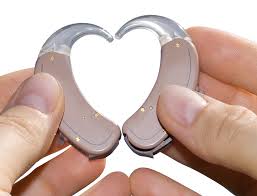How Good is Your Hearing?
Pardon I hear you say !
360 million people worldwide suffer from hearing loss. This figure could reach 900 million by 2025.
33% of the over 65 years of age are hearing impaired and currently 1.1 billion people, particularly young adults aged 12-35 years are at risk of hearing loss.
Most cases of deafness are caused by damage to the tiny hair cells in the inner ear. This damage can be caused by too much noise and it is permanent and usually irreversible.
It is important that we take steps to prevent noise-related damage and the key to keeping our hearing intact is to avoid loud noise. The louder the sound the less time it is safe to listen to it.
In the past noisy occupations such as factory or on roadwork used to be the most common cause of hearing problems working in a noisy industry should be less hazardous to hearing, provided you wear the correct ear protection. Nowadays it’s recreational loud noise that’s the main problem for younger people especially from iPods along with concerts.
Some hearing can be lost after being exposed to loud noises for too long or can be damaged after a short burst of explosive noise, such as gunshots or fireworks. The best way to avoid developing noise-induced hearing loss is to keep away from loud noise as much as you can.
Avoid stress and medication as far as possible to maintain hearing health for as long as possible.
Here’s a guide to some typical noise levels, measured in decibels (dB). The higher the number, the louder the noise. The Health and Safety Executive (HSE) says noise levels above 105dB can damage your hearing if endured for more than 15 minutes each week. But lower levels, such as between 80dB and 90dB can also cause permanent damage if you’re exposed to them for hours every day.
- normal conversation: 60-65dB
- a busy street: 75-85dB
- lawn mower/heavy traffic: 85dB
- forklift truck: 90dB
- hand drill: 98dB
- heavy lorry about seven metres away: 95-100dB
- motorbikes: 100dB
- cinema: some films regularly top 100dB during big action scenes
- disco/nightclub/car horn: 110dB
- MP3 player on loud: 112dB
- chainsaw: 115-120dB
- rock concert/ambulance siren: 120dB
Once the tiny hair cells in the ears are damaged they are unable to regenerate and so prevention is obviously better than cure. Once someone is showing signs of hearing loss then it is wise to have a hearing test. Then there is the choice of NHS hearing aids where available or they can purchased from somewhere like Hearing Direct. com.



Hello,
I have to admit I would take the advice of your doctors, they are the experts and hearing is so important.
I HAVE HAD HEARING TEST AND THE DOCTORS SUGGEST THAT I ALLOW THEM TO DRAIN FLUID FROM MY EAR . I AM RELUCTANT TO DO SO .. ARE THERE ANY OTHER ALTERNATIVES TO THIS PROCEDURE THAT YOU ARE AWARE OF ?